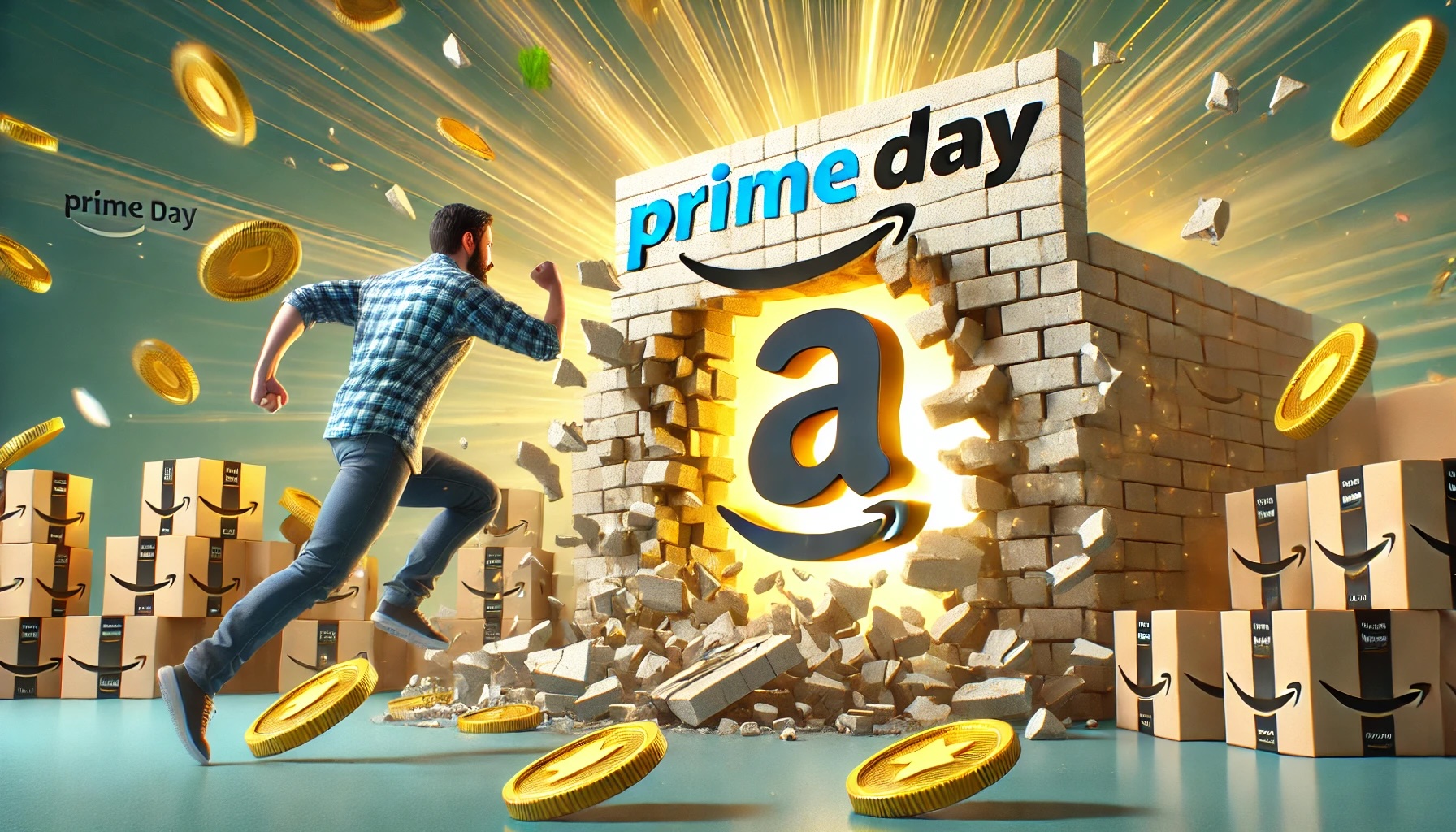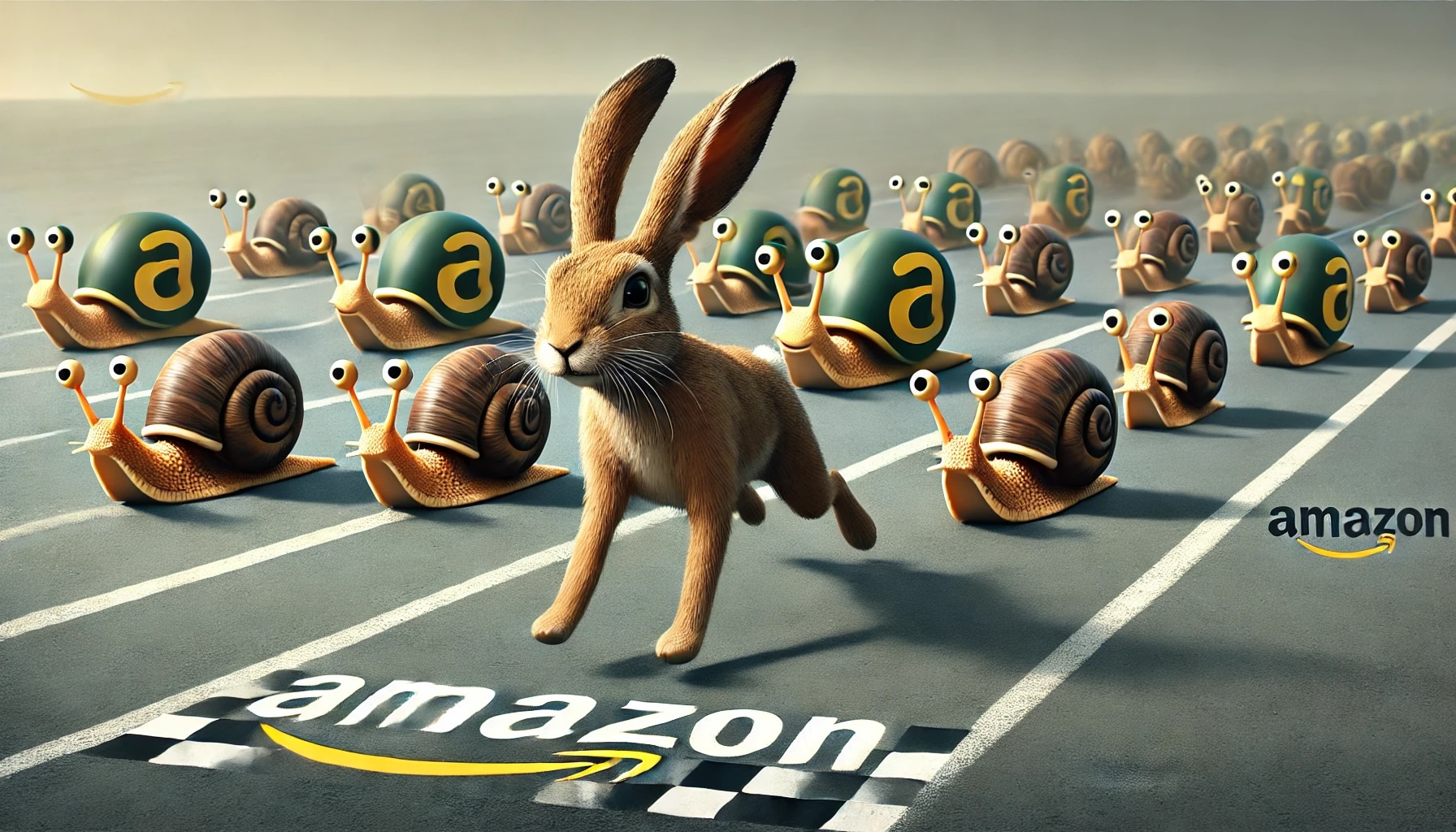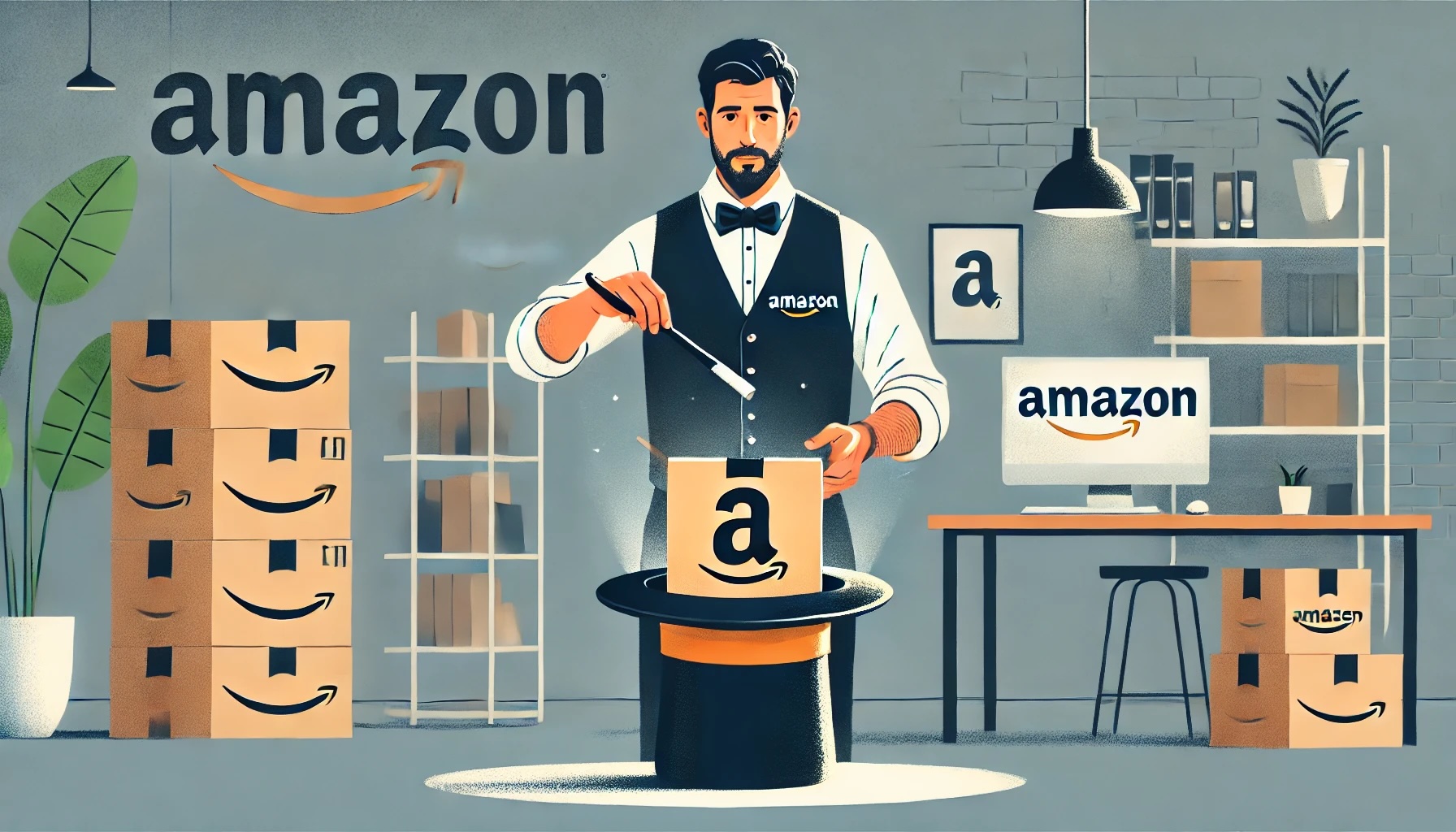Selling on Amazon? Here’s CANOPY Management’s 22 to Watch for 2022
To Kick Off 2022, Here Are 22 People, Strategies, Marketplaces, and Successes That Continue to Fuel the Ongoing eCommerce Renaissance

Ecommerce has been an absolute rocket ship ride over the last several years.
What’s most exciting about all of this is the way that people, strategies, and marketplaces have combined to function as entrepreneurial multipliers for increasing numbers of online sellers.
Amazon B2B aggregator, Thrasio has been all over the news as the company reached one billion dollars in valuation. In doing so it set a new U.S. record for unicorns (a private company with a valuation over $1 billion).
A couple of years ago, the thought of selling an Amazon business wasn’t on an online seller’s radar. In fact, Business Insider recently wrote that Thrasio’s Vice President of Acquisitions, Ken Kubec said to an audience at a recent webinar, “We were Googling, ‘How do you buy an Amazon business?’ and there was nothing on the internet about it.”
It seems that no one, particularly investors, understood Amazon businesses. Now, the marketplace is catching up in a hurry.
One of the most significant aspects of the rise of Amazon aggregators such as Thrasio is that their success comes from a combination of prescient entrepreneurial thought, leading edge strategies, and marketplace capitalization.
But, it’s not just one ecommerce ecosystem that is having all this success. It’s everywhere and across the board.
So, to start off 2022 I wanted to write a post detailing the 22 people, strategies, marketplaces, and success stories that helped contribute to this exciting renaissance.
Let’s begin with a few of the people who will certainly continue to move the eCommerce needle in 2022.
People to Watch In 2022
1. Gary Vaynerchuk
Gary ‘Vee’ seems to have been born an entrepreneur. As the Chairman of VaynerX, the CEO of VaynerMedia and the Creator & CEO of VeeFriends he presides at the head of a self-created eCommerce, media and marketing empire.
All it takes is a quick lap through LinkedIn to see the impact that he has had on the eCommerce ecosystem. He’s simply everywhere. References to Gary Vee show up in posts across the spectrum from mainstream Amazon FBA to subreddits promoting NFTs and Crypto anarchy.
Long considered to be someone with his finger on the pulse of what makes the business world tick, he also clearly understands human social dynamics and has made some very good financial guesses over the years.
A few of his early investments were in little companies such as Facebook, Twitter, Tumblr, Venmo, Snapchat, Coinbase and Uber.
2. Neil Patel
Neil Patel is doing something right! He has received the seal of approval from many of the world’s top media companies. He’s a New York Times Bestselling author. The Wall Street Journal named him a “top influencer on the web.” Forbes called him “one of the top 10 marketers,” and Entrepreneur Magazine declared that he was behind the creation of “one of the 100 most brilliant companies.”
I know him to be the creator of Ubersuggest, one of the most effective (and reasonably priced) SEO tools out there in the SaaS (Software as a Service) marketplace.
Neil is also a marketing genius with a client list that includes Facebook, NBC, eBay, intuit, and Google. Yeah, he’s in the big leagues. What’s interesting is that he has the ability (and the bandwidth) to reach out and connect with the little guys. As I mentioned above (with Ubersuggest) he has something for those of us in decidedly lower income brackets as well.
3. Brian R. Johnson
CANOPY Management’s Brian R. Johnson has helped over 20,000 brands grow on Amazon and sell over one billion dollars through ppc ad strategy, conversion rate optimization, and differentiation.
Brian is a driving force in the eCommerce world. Not only has he achieved success as an online seller, but he has become the Leading Strategist in Amazon Pay-Per-Click Advertising.
Over the course of his career, Brian has founded: the Amazon PPC Troubleshooting community, Amazon PPC Consulting Association, PPC Scope ad management software, and the Sponsored Products Academy training course.
He shares his wisdom through his own video podcast series and CANOPY Management’s Under the CANOPY podcast (both on Facebook). These two podcasts are ground zero for entrepreneurs and Amazon sellers looking to get a head start.
4. Anne Ferris
Most people have moments when they’re tempted to say the heck with everything and run off to a tropical beach town. However, when you’re also running away from a six-figure salary, that’s another story altogether.
Anne Ferris had been working for the world’s top grossing law firm. Anne left that (overly demanding) job to open a hostel in the Costa Rica jungle. Her next pivot was to eCommerce and selling on Amazon through FBA (Fulfillment by Amazon).
Starting with zero ecommerce experience and money borrowed from her mom for an Amazon-selling course, she now has a 7-figure Amazon business.
Her story (admittedly a great one) must resonate with a lot of aspiring entrepreneurs as well as industry insiders. All you have to do is Google her name and you’ll see her with big eCommerce podcasting names such as Helium 10’s Bradley Sutton, and Seller Session’s Danny McMillan.
5. Carlos Cashman
Build it to sell it!
How many of you Amazon sellers have thought about selling your business lately? If you’re one of the many, you might have Amazon aggregator Thrasio and Carlos Cashman to thank for that.
As a MIT (Massachusetts Institute of Technology) grad, Carlos had an expansive, visionary approach to life. He spent the last two decades working as an executive, founder, investor, and advisor in a variety of start-ups. It was when he co-founded Thrasio that he put himself squarely in the bullseye of Amazon sellers across the globe.
Carlos says that his path began at his own agency working on Facebook advertising for brands wanting to scale online. When he saw that smaller brands had difficulties taking advantage of the exponential benefits of the large eCommerce footprint of larger brands, the idea of “aggregating” smaller Amazon brands was born.
6. Erin Meyer
Erin Meyer is an author, speaker and culture expert. She’s also a professor at INSEAD, one of the leading international business schools. Her work is focused on how the world’s most successful managers navigate the complexities of cultural differences in a global environment. As eCommerce continues its exponential growth, cultural agility is going to be an important component of any leadership team.
Selected by the Thinkers50 as one of the world’s 50 most influential business thinkers, Erin first caught my eye because she went to Colorado College, the same tiny little liberal arts college that I did.
Looking closer, the reason that she’s popping up all over LinkedIn is because with her book, The Culture Map: Breaking Through the Invisible Boundaries of Global Business, she has helped a lot of us understand how we might better manage the challenges of our increasingly global business ecosystem.
Ecommerce is just one more place where a little cultural flexibility can open the door to innovation and help create a path forward to the success we’re all hoping for.
Marketplaces to Watch In 2022
7. Etsy
Etsy calls itself “a global online marketplace, where people come together to make, sell, buy, and collect unique items.” It’s a place to promote arts, artisan or craft products while at the same time helping their creators to be discovered
However, for some time now, clever Amazon sellers have also been using Etsy as an early warning system for emerging eCommerce product ideas. Etsy made the list for 2022 because Amazon sellers are always asking about ways to find their next hot product.
Take a look at Etsy, the next trending Amazon product might be waiting for you there.
8. Shopify
Tobias Lütke is the cofounder and CEO of Shopify, a Canadian eCommerce firm that helps companies set up and run online stores. He came up with the idea for Shopify when creating software for an online snowboard shop.
Founded in Ottawa in 2006, Shopify began as a simple way that merchants could build their own e-commerce websites. Today, it’s a public company with a market value that exceeds $100 billion.
How to compare Shopify to Amazon? A number of business experts have said something like, “The key to Amazon’s success has been to put the customer first, for Shopify the key has been to put the merchant first.”
For a lot of Amazon sellers, “merchant first” might have a nice ring to it!
9. YouTube
Sure, you can take an online course that’ll teach you how to sell on Amazon. But, it’s the videos such as those from Brian R Johnson, CANOPY Management, or the Private Label Label Legion’s Tim Jordan and Norm Farrar, that have really helped fuel the recent eCommerce boom.
Selling on Amazon can feel like a lonely pursuit. YouTube not only brings everyone a little closer, it’s also a great place to take advantage of the “hive mind.” A collective eCommerce consciousness helps make sure that sellers (at every level) might benefit from the vast experience of Amazon entrepreneurs.
10. Fintech (Financial Technology)
In late 2021, I had the opportunity to have a (virtual) conversation with Ricardo Pero, the founder and CEO of SellersFunding. SellersFunding is one of the most respected, and successful of the new FinTech companies that have made a big splash on the eCommerce scene.
Recently, FinTech companies specializing in supplementary funding for online sellers have become an important part of a rapidly changing business landscape.
In our conversation, Ricardo said that, “Timing and capital are two of the main components that bring small and medium sized businesses to success. 38% of small businesses fail due to lack of access to capital.”
The start of 2022 might be a good time to investigate the options that FinTech could offer your business.
11. SaaS (Software as a Service)
One of the many things that the internet has given us are SaaS companies. SaaS (or Software as a Service) is a way of making applications available over the Internet—as a service. Because users can simply access it by way of the Internet, it eliminates costly hardware and the learning curve that comes with it.
Greg Mercer, the Founder and CEO of Jungle Scout originally built his SaaS company as a Chrome extension to automate the process of finding products to sell on Amazon. Today, Jungle Scout has grown to a global team of over 250 employees and supports more than 500,000 Amazon sellers and brands, while managing $22 billion in Amazon revenue.
Along with other SaaS companies such as Helium 10, Jungle Scout has dramatically changed the way that Amazon entrepreneurs research, source, list and sell their products.
Strategies to Watch In 2022
12. Omni-Channel Marketing
Just a few years ago, an omni-channel strategy might have meant combining a brick and mortar store with eCommerce.
Sure, Amazon is still number one. But, in 2022 your omni-channel strategy might also involve selling through platforms such as Walmart, Shopify, Instagram, TikTok as well as Facebook Live.
With the recent IOS 14 update from Apple, marketers are increasingly worried about how they might gather important information from their customers. That’s where an omni-channel strategy comes in.
Not only does an omni-channel strategy mean more leads, it also brings an invaluable look into your customers’ behavior.
13. VR and AI (Virtual Reality and Artificial Intelligence)
The ongoing pandemic has changed the way that the world shops, and it seems that the evolution of commerce is only starting to pick up steam. Don’t like the idea of balancing awkwardly one one leg in a tiny changing room? Snapchat users can now try on clothing and accessories virtually with technology that responds to your own specific physical dimensions.
Obsess is an augmented and virtual reality software platform for experiential shopping.
Obsess says that, “(their) virtual stores let consumers browse an online rendering of an actual store, recreated down to the music that consumers would hear there. The virtual edition is a way to introduce new customers to the company’s retail experience.”
Which leads to . . .
14. Live Streaming
Another way that prospective customers are able to interact with their would-be purchases is through the rapid growth of livestream selling.
For the last several years, China has been behind the surge of selling through livestream events. It’s like the Home Shopping Network on steroids, but with hip, media-savvy influencers.
With livestream selling, a host demonstrates a product in a live online video either through a social media platform, or direct video calls with groups of customers. Shoppers can then make their purchase directly from the livestream platform.
In the last year, there has been a lot of talk about the gradual move throughout global e-commerce from Kardashian-sized influencers to what are referred to as “micro influencers.” Livestream influencers’ followers might only total a tiny fraction of that of mega influencers, but not only are they more affordable, their conversion rate is also significantly higher.
Which in turn brings us to . . .
15. Micro-Influencers
Many top Amazon sellers have a trick up their sleeves. It involves managing armies of micro-influencers that work with relatively smaller numbers of VERY passionate followers.
We’re all aware of the high visibility of celebrity macro-influencers. Children who used to grow up wanting to be sports stars and firemen (and women), now want to be social media stars.
However, it seems that bigger is not always better. The admittedly smaller numbers of followers that micro-influencers inspire are FOCUSED! Typically, they’re not in it for the celebrity factor. In most cases it’s because they believe in the influencer AND the product.
Who doesn’t want to turn followers like that loose in your niche?
16. Sustainability
Not only did the pandemic contribute to the exponential growth of eCommerce, it also helped make sustainability an important part of a brand’s marketing strategy.
It’s the right thing to do for the planet that we live on and particularly among younger buyers, a reputation for sustainability is often why they press the buy button.
Patagonia, founded by Yvon Chouinard in 1973, has built its brand around its sustainable credentials. By 2025, Patagonia plans to be 100% carbon-neutral across their entire supply chain.
Patagonia builds their merchandise with the ethos that they should last and be repaired when damaged. I’ve witnessed Patagonia salespeople actively discourage what they consider unnecessary purchases.
In fact, a popular part of their online catalog features Patagonia Worn Wear that resells Patagonia merchandise that has been traded in and repaired.
17. Podcasting
Podcasts have become one of most popular forms of media on the internet. Over half of Americans have listened to a podcast, with an increase of over 37.5% listeners in just three years.
Again, this is probably a pandemic-driven acceleration of an already heated trend, but I’m willing to wager that that 50% number would rise dramatically if we only polled Amazon sellers.
When it comes to eCommerce, everybody has a podcast. And there’s a reason for that growth. Podcasts allow sellers to stand on the shoulders of eCommerce giants as they navigate their entrepreneurial path.
Danny McMillan’s Seller Sessions, Tim Jordan’s AM/PM Podcast, Brian R. Johnson’s Facebook video series, CANOPY Management’s Under the CANOPY, and Helium 10’s Serious Sellers Podcast should all be required listening for Amazon sellers.
Successes to Watch In 2022
18. Elevate Brands
Earlier in this post I wrote about the influx of FinTech money that is helping drive the boom in eCommerce. A healthy chunk of that cash has been directed at the growing numbers of Amazon aggregators that specialize in acquiring, launching and operating leading consumer brands in Amazon’s third-party seller marketplace.
One of the real successes in that crowded ecosystem is Elevate Brands. Founded in 2016 by a pair of first-time entrepreneurs, Elevate raised a total of $372 Million in 2021 and has already positioned itself at the forefront of a constantly evolving eCommerce model.
Unlike some of the aggregators that simply assemble then flip the Amazon businesses, Elevate takes pride in their ability to operate the businesses it acquires. With many of the larger Amazon businesses, Elevate retains existing employees to help operate those brands.
Build it to sell it isn’t just an Amazon catch-phrase, it might be how you get that one big payday you’ve been dreaming of.
19. Josh Snow
Josh Snow is the founder and CEO of Snow. He’s a digital marketing prodigy, starting his first eCommerce company at the age of 13, and bootstrapping his way to more than $100 million in sales. Along the way he started collecting endorsements from celebrity clients and gained over two million social media followers.
A favorite of celebrities and influencers, Snow Cosmetics is a teeth whitening and oral care brand with the singular goal of making people happier with their smile.
We (the CANOPY Management Tribe) know Josh because of our work with Snow and CANOPY Management’s success in balancing Snow’s primary objective of driving top-of-funnel awareness with bottom-of-funnel sales goals.
The results? Snow Cosmetics had over 21 MILLION total impressions, and of the $251,937 in total sales, 62% of those sales came from new-to-brand customers!
20. Ezra Firestone
Ezra Firestone is a giant of the industry and has built brands that generate over $20 million in annual revenue, including BOOM! by Cindy Joseph. He’s also the man behind the Smart Marketer eCommerce and marketing resources, and Zipify Apps, which manages a portfolio of Shopify apps.
He’s one of the very small number of people that when he posts on Twitter, and YouTube, or speaks at an eCommerce conference, everyone, from beginners to 8-figure sellers, stops what they’re doing to listen.
Plus, his personal (and business) motto is “Serve the world unselfishly and profit.” That’ll get him on a lot of my lists.
21. Amazon
In the last year Amazon has only solidified their position at the top of the eCommerce pyramid. The pandemic was a massive lever in changing consumers’ buying behavior with Amazon’s financial results revealing a 38% increase in net sales.
A study by Salesforce showed that nearly 60% of consumers say that they plan to do more online shopping once the pandemic finally winds down.
With eCommerce sales accounting for only 14% of total retail sales over the last 36 months, Amazon still has an enormous segment of consumers that they’d like to convince to see things their way.
That can only mean a big upside for Amazon in 2022, as well as for all of the third-party sellers taking advantage of Amazon’s marketplace.
22. eCommerce
Yep, the exponential growth of eCommerce has to receive a little spotlight itself. As I mentioned above, the effects of the pandemic are hard to overstate. Still, a rising tide lifts a lot of boats, and over the last two years, eCommerce helped create a tidal event the likes of which we’ve never seen.
Over the last seven years, eCommerce increased from 1.32 billion in 2014 to 2.14 billion in 2021.
Ecommerce is constantly evolving. With that change comes enormous opportunity. Social media platforms have morphed from a nice way to stay in touch with family and friends into a place to collect the important data that increasing numbers of selling platforms are determined to keep for themselves.
Is your business optimized for mobile? Dovetailing with the immediacy of social platforms will be the increased usage of mobile devices as a way to maintain contact with friends as well as check Amazon FBA inventory levels, livestream, or simply shop the internet for a great deal.
Because of that, my last caution will be to make sure that you are ready for the increase in eCommerce traffic. As you all well know, that’s a double edged sword. It tends to reward those who have built out their businesses to include multiple product sources, shipping options and warehousing possibilities.
Wishing you all the best in the coming year!
How CANOPY Management Can Help You In 2022
CANOPY Management refers to itself as a “full service” Amazon Marketing Agency. When you take a look at the list of the ways in which CANOPY Management is able to help you grow your Amazon business, you’ll know why.
- Strategic Growth Planning
- Listing Copywriting Optimization
- Listing Photography
- Product Videography
- Amazon Advertising Management
- Customer Service
- Demand Side Platform (Amazon DSP)
- Amazon Posts
- Full Service Amazon Management
- Amazon Review Aggregation
Are you looking to expand your income stream, or transition away from your primary career? It’s a new year and with the growth of eCommerce, now is a great time to reap some benefits yourself!


